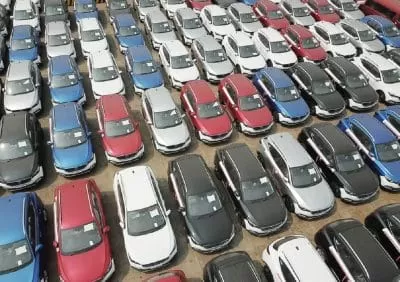Car sales have been an integral part of the global economy for decades, with millions of vehicles sold each year. However, in recent times, there has been a significant decline in the sales of certain models in the market. This has raised concerns among industry experts and stakeholders, as it can have a significant impact on the automotive industry as a whole.
According to recent reports, the sales of these cars have dropped significantly, with some models experiencing a decline of up to 30%. This is a cause for concern, as these cars were once considered top sellers and brought in significant revenue for their respective companies. So what could be the reason behind this sudden decline in sales?
One of the main factors contributing to this downfall is the global economic slowdown. With the economy taking a hit due to the ongoing pandemic, many consumers are cutting back on their spending, especially on big-ticket items like cars. This has resulted in a decrease in demand for these cars, leading to a decline in sales.
In addition to the economic slowdown, changing consumer preferences and the rise of electric vehicles have also played a role in the decline of these car sales. With the increasing awareness of climate change and the need for sustainable transportation, more and more consumers are opting for electric vehicles over traditional gasoline-powered cars. This shift in consumer behavior has affected the sales of these cars, as they are not known for their fuel efficiency or eco-friendliness.
Moreover, the lack of new and innovative features in these models could also be a contributing factor to their decline in sales. In today’s market, consumers are constantly looking for the latest technology and advanced features in their vehicles. If a car model fails to keep up with these evolving trends, it can quickly lose its appeal to potential buyers.
The decline in sales also has a ripple effect on other industries, such as car dealerships and aftermarket businesses. With fewer cars being sold, these businesses also suffer, leading to a decrease in their profits and potential job cuts.
However, it is not all doom and gloom for these models. Despite the decline in sales, they still hold a significant market share and remain popular among a certain section of consumers. To revive sales, companies need to focus on addressing the issues mentioned above and adapt to the changing market demands.
One way to boost sales could be by introducing more eco-friendly models that cater to the growing demand for sustainable transportation. Companies could also invest in research and development to introduce new and innovative features that appeal to modern-day consumers.
In addition, marketing strategies also play a crucial role in increasing sales. Companies need to focus on creating a positive brand image and highlighting the unique selling points of their models. By effectively communicating the benefits of these cars to potential buyers, companies can attract more customers and increase their sales.
Another effective way to boost sales is by offering incentives and discounts to customers. With the current economic situation, consumers are looking for the best deals, and companies can capitalize on this by offering attractive discounts and financing options. This can encourage potential buyers to make a purchase and help revive the sales of these models.
In conclusion, the decline in sales of these cars is a cause for concern, but it is not a hopeless situation. By addressing the underlying issues and adapting to the changing market demands, companies can revive the sales of these models. With the right strategies in place, these cars can regain their position in the market and continue to be successful in the future.

